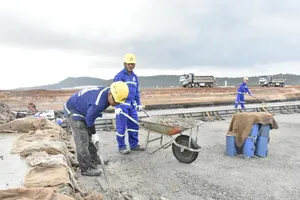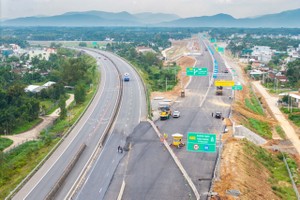
In the conference, Director Le Ngoc Quyen of the Southern Region Hydro-Meteorological Centre informed that until now, the levels of saltwater intrusion in the Mekong Delta provinces of Ben Tre and Tien Giang are much higher than those in 2016.
The level in Ben Tre Province on March 26 was 1‰ at 69km away from Dai estuary and 72km deep inside Ham Luong River. The one measured at My Tho Station on March 12 was 6.8‰, by far higher than that in 2016 (3,9‰).
The levels in other provinces of Soc Trang, Long An, Tra Vinh, Bac Lieu, and Ca Mau are also higher than the average of many years but still lower than those in 2016 and 2020.
Assoc. Prof. Dr. Nguyen Hieu Trung – President of Can Tho University – commented that besides unavoidable objective factors from nature, human beings themselves contribute a great deal to this problem. Unsuitable management and exploitation of underground water leads to delta subsidence, whereas over-mining of riverbed sand results in lower riverbeds, creating a favorable condition for deep saltwater intrusion.
In addition, inappropriate conversion of land use purposes helps to bring saltwater deeper into the fields and make irrigation management much more difficult.
Assoc. Prof. Dr Nguyen Thi Hong Diep from Can Tho University proposed that it is necessary to synchronously adopt various feasible solutions to adapt to drought and salinity intrusion.
In particular, the local authorities should instruct residents to build reservoirs for freshwater to serve both daily operation and agricultural purposes. There should be more support for farmers to upgrade their cultivation techniques suitable for the local water source of each ecosystem, to shift structures of crop planting and animal raising appropriate to each region. More research should be done to create new plant varieties that can resist drought and saltwater while bringing more economic values.
























